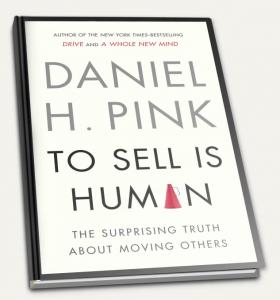August 15, 2014
During his Willow Creek Global Leadership Summit presentation Friday morning, author and business strategy expert Joseph Grenny outlined one of the most important myths most people believe when it comes to their friendships: “You have to chose between telling the truth and keeping friends.”
Most people believe if they have those important conversations with others, hurt feelings will lead to estrangement. Just like in business circumstances, this myth creates tensions in relationships that ultimately lead to their deterioration. He identifies what he calls “moments of disproportionate influence” where the opportunity to have the crucial conversations that can resolve conflict arise.
Grenny’s talk was just one of several I was able to watch at Baylor’s Waco Hall this past Thursday and Friday through my internship at the LAUNCH Innovative Business Accelerator. The building served as one of hundreds of host sites that presented a live video feed of the Global Leadership Summit, which took place at Willow Creek in Chicago.
Avoiding these crucial conversations in order to avoid conflict, Grenny said, “is at the heart of most of our dysfunction and barriers to achieving our potential.” He went on to describe an effective leader as someone who identifies the two or three crucial conversations that most affect his or her team or organization.

In the first session of the summit, Willow Creek’ pastor, Bill Hybels, also touched on the importance of these conversations. I’m paraphrasing here, because I wasn’t able to write fast enough to get it word-for-word, but it went a little something like this: “Conflict should be seen as an opportunity to strengthen a relationship and establish deeper levels of trust after you have resolved the issue.”
Grenny described a situation he encountered while working with an authoritarian CEO at a client company. The CEO wanted to dismiss certain parts of the plan that he and Grenny had worked on and Grenny had to decide whether to voice his objections or not. His advice for approaching these situations is to 1. Help them know you care about their problem in an effort to create “mutual purpose” and get them to relax in order to make them more likely to listen to what you have to say; and 2. Create mutual respect so they know you care about them and respect them.
August 2, 2014
This is the first of a two-part series where I check in with classmates to see how they are doing. In this first installment, I spoke with some healthcare MBA friends who are at the beginning of their administrative residencies, which is just a glorified name for an extended internship. I spoke with Hannah Reigel, who is in Oklahoma City, Stephen Chandler, in Detroit, and Michael Faulkenberry, who is in Dallas. All three will return to Baylor for their final semester in the Spring of 2015 before graduating next May.
Stephen has really enjoyed the breadth of information he has to tackle on a daily basis. “I get a combination of strategy, marketing, finance, and operations at the same time with some of the projects I’m working on,” he said. “I work on hospital-level projects as well as system-level stuff, too. So it’s been great…For me, [the residency] has been exactly what I wanted it to be.”
Hannah picked her residency because of all the access she was promised. It has not disappointed. “I can for the most part walk into any department or meeting and I am welcome,” she said. “I’ve been the most impressed by the fact that they know that I am there short-term as I have to return to Baylor, but I still have been involved in top-secret meetings.”
Michael has enjoyed being a part of getting to plan the opening of a new trauma tower of the hospital where he is based. “There was a tremendous amount of attention paid to the slightest of details, from design and equipment to accounting practices involved,” he said. “So far, I have been exposed to a myriad of issues facing the health care industry, and I have seen just how complex it truly is. I have been challenged by leaders who want my input on issues, and that has kept me focused and proactive each day.”
 All three said their coworkers look just like this…
July 15, 2014
One of the tasks the other interns and I have had to work on over the past two weeks was to develop a scorecard to be used to evaluate the businesses we’ve been working with this summer. Part of the purpose of the scorecard is to be able to assess which of the current clients would be appropriate for continuing on into the incubator LAUNCH is looking to begin this fall.
One of the criteria we established for measurement is “Business model is scaled to opportunity.” So this is a measure of how the business plan has been structured to either take advantage of the full market available to the company and it’s product or service, or whether it’s structured to just be grown slowly over time to allow for the business owner to conveniently grow it while maintaining his or her other responsibilities in life. So if you’re making a new kind of widget, are you setting yourself up to be able to sell to all the companies that could benefit from your widget? Or are you structuring the plan so you can make enough widgets in your spare time, after work and on weekends, and gradually, over time, maybe, move up and service the whole market?

Our discussion of this criteria has really opened my eyes. Part of what an accelerator like LAUNCH is there to do is to help entrepreneurs and inventors see the big picture and to lay out the opportunities for growth. One of the questions we asked one of our current clients was: “What would it take to address the scale of the need, not just the scale of the need of the business to survive as a company?”
So in that particular case, the answer was to possibly hire a salesperson or two, and possibly seek outside investment. The difference, in terms of potential customers, was between a few hundred versus 7,000. The particular product in question would benefit pediatric, neuromuscular, and geriatric physical therapy patients. A large motivation for the inventor is to be able to help as many people as he can with his device. With that in mind, scaling the business model to its greatest potential is aimed more at actual patient benefits rather than an explicit profit motive.
July 7, 2014
When I first heard about Kodak filing for bankruptcy, I skimmed over the headline without clicking the link to read the full story. I just assumed the company had missed out on the digital photography opportunity, and that was the end of the story.
But I found out the other day that the company actually invented digital photography, but management ordered the projects scrapped in order to continue the focus on film.
“This tells you, it’s all about management,” Casey Leaman, one of the LAUNCH accelerator coaches told us interns.

I’ve since done some digging and found out the following, which is pretty darned interesting:
Kodak invented the first digital camera in 1975 and patented numerous digital technologies. Afraid that digital would cannibalize their film photography business, they never pushed those products after bringing their first digital camera to market in 1995. Those patents are estimated to be worth $2 billion today.
In 2005, Kodak created the first WiFi camera that allowed you to share photos without having to first connect to a computer. Unfortunately, people weren’t ready for that technology, yet, and the camera didn’t sell. Kodak killed the line.
As anyone who has read Theodore Levitt’s “Marketing Myopia” will tell you, Kodak failed to realize that it wasn’t in the film photography business, it was in the photography business. It didn’t adapt to the changing innovation in its industry, which it had actually invented.
Sources:
June 24, 2014
One of the major things I’ve learned during the internship so far is the importance of persuasion. One of our coaches recommended we read “To Sell is Human,” by Daniel H. Pink. The book talks about how everyone is in some capacity a salesperson because he or she has to constantly convince others to part with resources, whether it be time, money, or energy, in order to get something they are trying to sell.
During a recent pricing discussion with one of our clients, we had to convince them to consider alternative pricing strategies since we thought they were pricing their product way too low. I never really thought about how important the persuasion skill is, but it was gratifying that by the end of the meeting, we had convinced them to be open to revising their pricing model.

In arriving at their desired price, for example, they compared their application with other applications that I didn’t think were comparable services. I was able to convince them to look at direct competitors, as people have different elasticity to pricing depending on the product or service.
I made sure to frame my recommendations as a discussion and as an informational service rather than trying to be pushy, which I think was the best tactic to take.
June 13, 2014
We gathered around the conference table, peppering Casey Leaman with questions. We’d all been working on our respective projects for a little over two weeks. Our clients would be coming in at noon and we wanted to throw a few things at Casey, one of our coaches, before the weekly face-to-face meetings began.
During that hour long conversation, he shared with us some of the basic rules of business that he likes to follow. My fellow interns and I, all tasked with helping clients who range from Baylor professors to sophomore business majors, listened intently:
Rule #1: Do something! Don’t waste time waiting. Take what you have and follow your instincts.
On May 21, I started my internship at the LAUNCH Innovative Business Accelerator, housed in the Baylor Research and Innovation Collaborative. The other interns and I are basically startup consultants working with inventors and early stage businesses to help them get their ideas off the ground. Each of our clients are in completely different stages along the business life cycle. Some have working products and just need to figure out how to get them in the right hands and at the right price. Others have been planning their ventures for almost a year but need some help getting them to the next level.
And so we aren’t always able to get in touch with our clients to get answers to questions we might have. So Casey’s advice is always, “Do something!” We’re all smart people, he likes to tell us, we just need to stop thinking like students and start thinking like consultants. Go ahead and follow our best judgment, he likes to tell us. Chances are, the competitor analysis, website wireframe, or strategic partnerships research will be exactly what is needed. This brings us to Casey’s next rule:
Rule #2: Present things for people to react to.
It’s always better to be proactive and just go ahead and do something so you have something to show the client. It probably won’t be exactly what they want, he warns us, but it will help the process move forward and will lead to things that the client wants and needs to progress with the business. Even if it’s in an area where they will eventually need to speak to a professional, like a patent attorney, it’s good to give the client some frame of reference to start from.
There are more of Casey’s rules that I’ll share as the summer progresses. They are just the tip of the iceberg of what I’m learning at my internship. Everyday feels like a crash course in entrepreneurship. I’ve used things I’ve learned in many of the MBA classes I’ve taken and it’s fun having that base of knowledge to draw on to help real live businesses. It’s one thing to take a position on a case study in class, it’s another when you’re staring at someone who is pouring their heart and soul into a dream and looking to you for recommendations that will hopefully help that dream come true.
 The lobby of the Baylor Research and Innovation Collaborative building.
March 28, 2014
I’m in Austin staying in the guest room of my friend’s house. At 8:30 a.m. tomorrow morning, I’ve got an interview for an internship. I’ve spent the last week reading everything I can about the company, which I will not name for fear of jinxing the whole process.
I did a mock interview with Mike Estepp, director of MBA Career Services, this past Tuesday and it went well. I’m thinking happy thoughts and am actually looking forward to the interview, which is not something I think I have ever said before.
Wish me luck!
|






